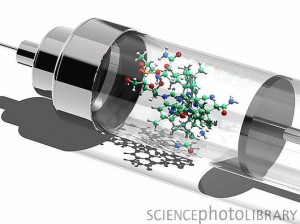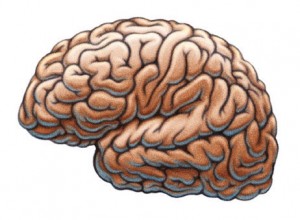Fibromyalgia symptoms can increase in the summer as the heat rises; even an incremental half-degree in the temperature can cause headaches, dizziness, nausea, swelling, and fatigue for most fibromyalgia patients. Here are some tips for battling the heat and fibromyalgia pain this summer.
Red puffy face, excess sweating, nausea, and fatigue are symptoms of overheating. If you have fibromyalgia, then you’re probably more sensitive to the sun’s rays than most. Before you lose your cool, make sure you’re doing all you can to prevent summer headaches.
1- Avoid brain fog
Brain fog is a constant companion with many chronic illnesses like fibromyalgia, chronic fatigue, pernicious anemia, and multiple sclerosis (MS). The summer heat makes it even harder to avoid symptoms like dizziness, poor concentration, confusion, light-headedness, weakness, and difficulty walking.
If brain fog is a problem, keep a stash of smelling salts on hand, or a homeopathic rescue remedy.
Also, make sure your vitamin B12 levels are normal by checking regularly with a blood test. Brain fog is a common symptom of vitamin B12 deficiency, but easily treated with a strict regimen of vitamin B12 supplementation.
Read more about fighting fatigue: Boost Energy Now! 20 Practical Tips for Fighting Fatigue
2- Go au naturel
Do you wear breezy cotton pantsuits to work, or do you favor tight Lycra pencil skirts? If you answered the latter, then it’s time to give your wardrobe a summer makeover. Snug synthetic clothes trap heat (think human microwave).
To keep cool throughout the afternoon highs, choose natural fabrics like organic cotton, linen, and hemp. Be generous in picking the right size- summer is not the time for clingy body-hugging tops when you’re trying to prevent a fibro flare-up.
3- Wear a cooling vest
Drastic times call for drastic measures; if you absolutely can’t handle hot temperatures, order yourself a cooling garment from one of the many available websites. Many designed to maintain low temperatures and provide lasting relief to chronic pain sufferers.
4- Sip it
It can’t be said enough times- drink, drink, drink! Dehydration is one of the leading causes of summer headaches and hospital visits. Symptoms of dehydration may include “brain fog,” nausea, headache, and fatigue. Sounds like typical fibromyalgia symptoms, doesn’t it? All the more reason to be extra vigilant with your water consumption if you happen to have fibromyalgia or chronic fatigue syndrome (CFS).
For tips on getting enough H2O, read: 12 Ways to Flavor your Drinking Water without Refined Sugar
5- Get misty-eyed
If air conditioning chills you to the bone, as it does for many fibromyalgia sufferers, then another good way to prevent overheating is to stay wet. Spritz yourself with a fan mister, dunk your feet in a tub of water, or set up a sprinkler in your back yard.
6- Stay in the shade
If you can’t find a shady spot to sit, then bring your own portable shade! Keep a beach umbrella stashed in your trunk, along with a scarf, sunglasses, and wide sunhat. In a pinch, a rainy-day umbrella provides excellent protection from the sun’s rays, too.
7 Days of Refreshing, High Energy Smoothies without Caffeine
7- Go to vacation mode
The great thing about vacations is the way you give yourself permission to slow down, take it easy, and keep your schedule flexible. That’s a great attitude to have year-round, especially in coping with chronic fatigue or fibromyalgia.
If you absolutely must go to the mall or check your mail at the post office, plan to go when the sun is least oppressive, before 11:00 am and after 4:00 pm.
Please tell us…
Share with your friends!
Like this? Read more:
Celiac Summer, Part 1:Plan a Fun and Gluten-Free Disney Vacation
10 Most Tempting Vegan Ice Cream Recipes
Battle Fibromyalgia Stigma and Win: 6 Tips for “ER Junkies”
Images courtesy of FreeDigitalPhotos.net
























